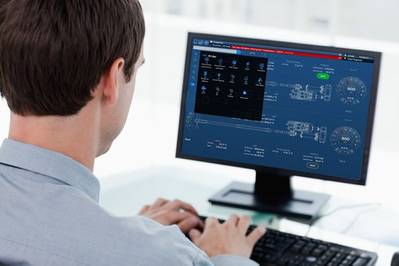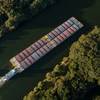RH Marine Maintaining Operations with Remote Services
Maritime electrical and automation systems integrator RH Marine reports it is performing an increasing number of its services remotely amid travel restrictions and other challenges brought on by the coronavirus pandemic.
The engineers and people from RH Marine that normally go on board vessels to solve malfunctions, update software or for sea trials and other testing have not always been able to do so due to various COVID-19 measures due to reduced airline availability, government coronavirus measures as well as vessel owners' preference to have as few external people on board as possible.
To still help customers quickly and at all times, and to keep vessels operational, RH Marine says it is using its remote assistance capabilities more often, especially when software settings updates are required due to changes in surrounding hardware or added sensors. “That has to be solved quickly and there is not always time to fly in an engineer,” says consultant Ehab El Amam of RH Marine.
RH Marine says it has built in a router with a hardware key in its on board system, that keeps the master in control of starting the connection. When the hardware key is turned on, the router is powered and connects via a secured connection over the internet eventually to the support engineer’s computer. In this way, RH Marine can remotely connect to all software systems and analyse problems quickly and safely, by either advising the crew what to do or changing software-settings if required.
In addition to time savings, the total service costs can also be reduced by using this new technology, the company says. Normally, service engineers have an average of two to three days of travel time to and from a vessel. With Remote Assistance, these costs can be canceled. El Amam says, “These are the direct costs you save, but the real savings are in the time that the vessel is inoperative. For example, DP vessels are not allowed to sail if there is a problem with the DP system. Mostly large offshore vessels are rented for 10-thousands of dollars per day. If you can prevent such a vessel from being inoperative for single days via Remote Assistance, then it could save tons.”
Recently, an offshore vessel received a software update via Remote Assistance. In addition to the software update, we were also able to analyze stored data on board in relation to certain operations and/or user actions. We were able to see this remotely. Normally this is done on board with a laptop, but now we were able to retrieve the data remotely," El Amam says.
Even a Dynamic Positioning system on board a superyacht in Seattle has been set-up via Remote Assistance. Normally a DP engineer would be required to go on board, perform necessary tests and adjust the software parameters. Now there was another engineer on board who was in contact with the DP engineer in the Netherlands via Remote Assistance to adjust the vessel remotely.
In another instance a survey vessel needed a new interface system, which prevented it from sailing for a test voyage at sea. El Amam happened to have just checked in to fly from Florida to Boston and logged on board via the encrypted connection to the vessel's PC. High up in the air he could remotely analyze and fix the problem.















